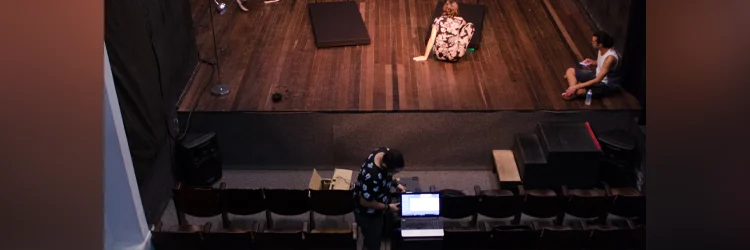Friday Briefing: When theatre begins to create its own narratives
Theatrical coincidences that create their own narrative
Life - and the theatre that it reflects - is full of coincidences. This week, Albion - Mike Bartlett's brilliant play that first premiered in 2017 and is full of premonitions of the dark shadows being cast by Brexit - returned to London's Almeida, opening mere days after the results of the referendum were finally implemented and Britain officially left the EU. The very next day, the National premiered Death of England, another stark and startling new play - co-written by Roy Williams and Clint Dyer - that also tracks the referendum and its impact on a father and his son who cast different votes.
But beyond the coincidence of the plays opening one night after the other, they not only complement each other in intricate ways, but also reveal different playwrights responding to the events set in motion by the Brexit vote in strikingly different but equally powerful ways. Albion feels, two years on from its original production, not only unusually prescient but also somehow timeless, too: this portrait of family dynamics will live on long beyond the immediate circumstances it was born of.
It's also amazing how Death of England began its own life in 2010, long before Brexit was even put to the vote, as a short film commissioned by the Royal Court and the Guardian, but has now been expanded into a full-length monologue that is now bang up-to-date.
Theatre makers have a way of predicting the future that somehow becomes the present, and will still resonate when that moment is in the past.
Another, perhaps less welcome (at least to me), coincidence has come with the presentation of some rare Samuel Beckett short plays in London just weeks apart. At Jermyn Street Theatre, Trevor Nunn presented a triple bill of Krapp's Last Tape, Eh Joe and The Old Tune (in a run that ends tomorrow, February 8), while at the Old Vic this week, Richard Jones directed the rarely-seen Rough for Theatre II, paired with the more familiar Endgame. A little Beckett goes a long way for me, and my cup is now full.
But I do, at least, relish some of the commentators that agree with me! The West End Whingers - those indefatigable bloggers who still snipe irresistibly from the sidelines - concluded their review by stating: "Endgame may be something to do with the futility of theatre existence and the passing of time. Beckett successfully stretches time by making 1 hour 25 minutes seem considerably longer. Did Beckett write plays to make his audiences suffer too? Life may be too short for this. Unless of course you were Kirk Douglas."
The joys of site-specific theatre
It's long been the case that the venue you're seeing a show at contributes to its success (or not); I've heard it said that producers need to cast their theatres as carefully as they cast their shows. It may be one of the reasons for the hostility engendered by the arrival of the touring production of The Wedding Singer in London, of which the Evening Standard's Nick Curtis declared: "[Kevin] Clifton is no actor, but that's barely noticeable since the script, and the cavernously unatmospheric Wembley Troubadour, require performances so brash and cartoonish they would shame a panto."
On the other hand, last week I revisited the production of Agatha Christie's Witness for the Prosecution, being staged within the original council chamber of the now long-defunct Greater London Council at County Hall, where the courtroom-like venue is a brilliant stand-in for the Old Bailey.
Agatha Christie's courtroom drama may be a little creaky - but director Lucy Bailey makes it animate this space with a gripping sense of jeopardy and drama. The physical space amplifies both. As Bailey says in a programme note, "I knew at once it was a gift of a space. Most Londoners know of County Hall but have never been inside. As soon as I saw the amazing secret chamber, I knew it was perfect for staging Christie's courtroom drama."
That show is now in its 3rd year here, and as a full house the night I saw it demonstrates, it is likely to be here for a while to come. A big part of that success is the room itself. But it's not the only reason: properly good actors are also being cast in it. Though Jeffery Kissoon was off as the judge when I was there, the terrific Jo Stone-Fewings was admirable as the defence barrister.
Only 322 days to go...
It's only February, but already some producers are thinking ahead to Christmas. I've just received my first panto press release, notifying me that Strictly Come Dancing head judge Shirley Ballas will star in the Fairy Godmother in Cinderella at Blackpool's Winter Garden, returning panto the venue for the first time in over 60 years.
The success of the London Palladium's own annual panto season is obviously providing a model for others to follow. But at the Palladium director/producer Michael Harrison has also neatly established something else: an established company of panto regulars, led by Julian Clary and also including Paul Zerdin, Nigel Havers and Gary Wilmot. As I said in my review of Goldilocks and the Three Bears in December: "They've now honed a unique way of working that relies on a fantastic rapport between them, countless running gags, and a bravura sense of confidence and subversive humour that will appeal to the adults on a different level entirely to the kids in the audience. The show itself does not so much walk a tightrope between different genres as send them hurtling into each other outrageously."
Originally published on
